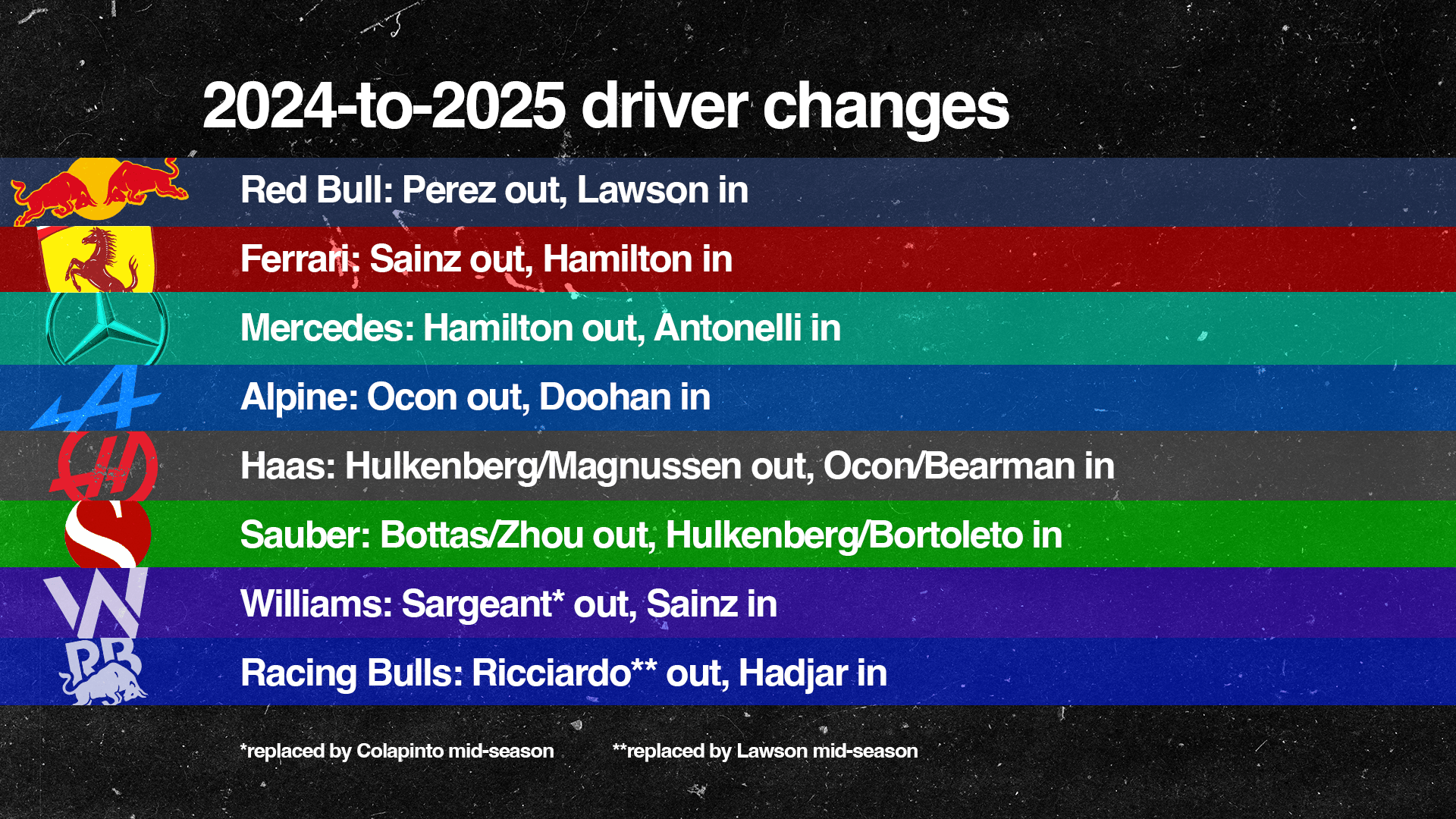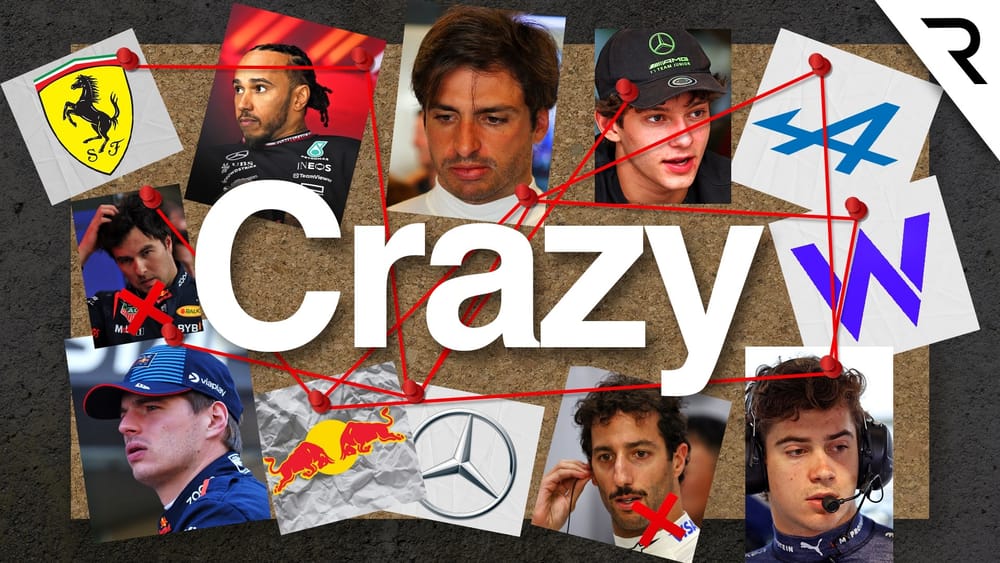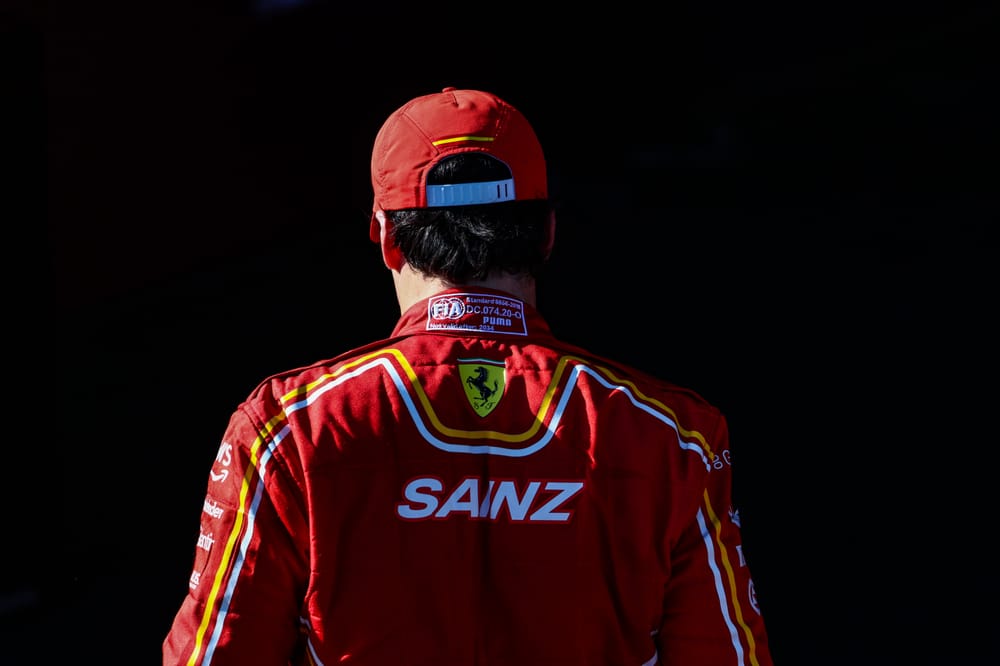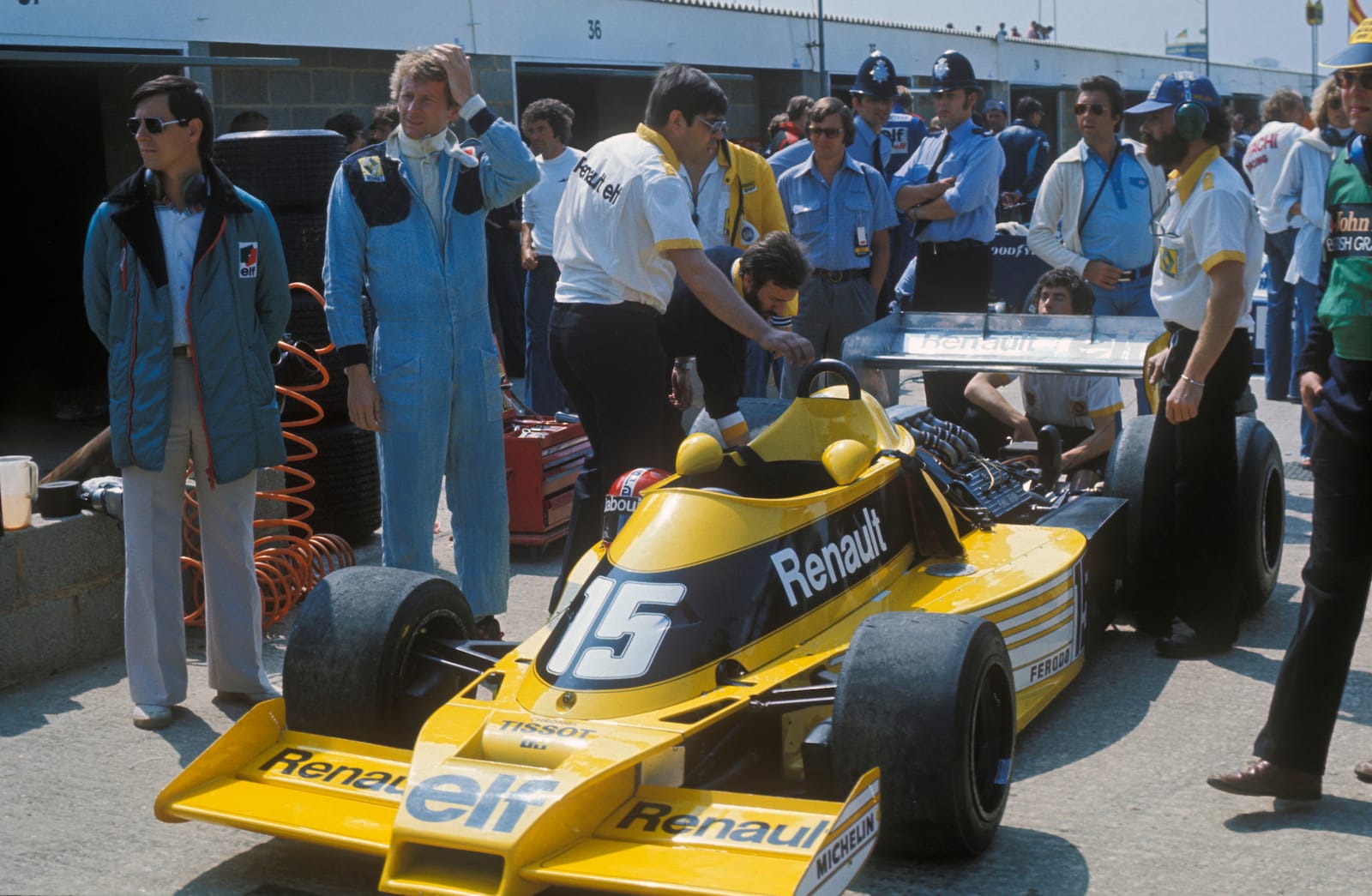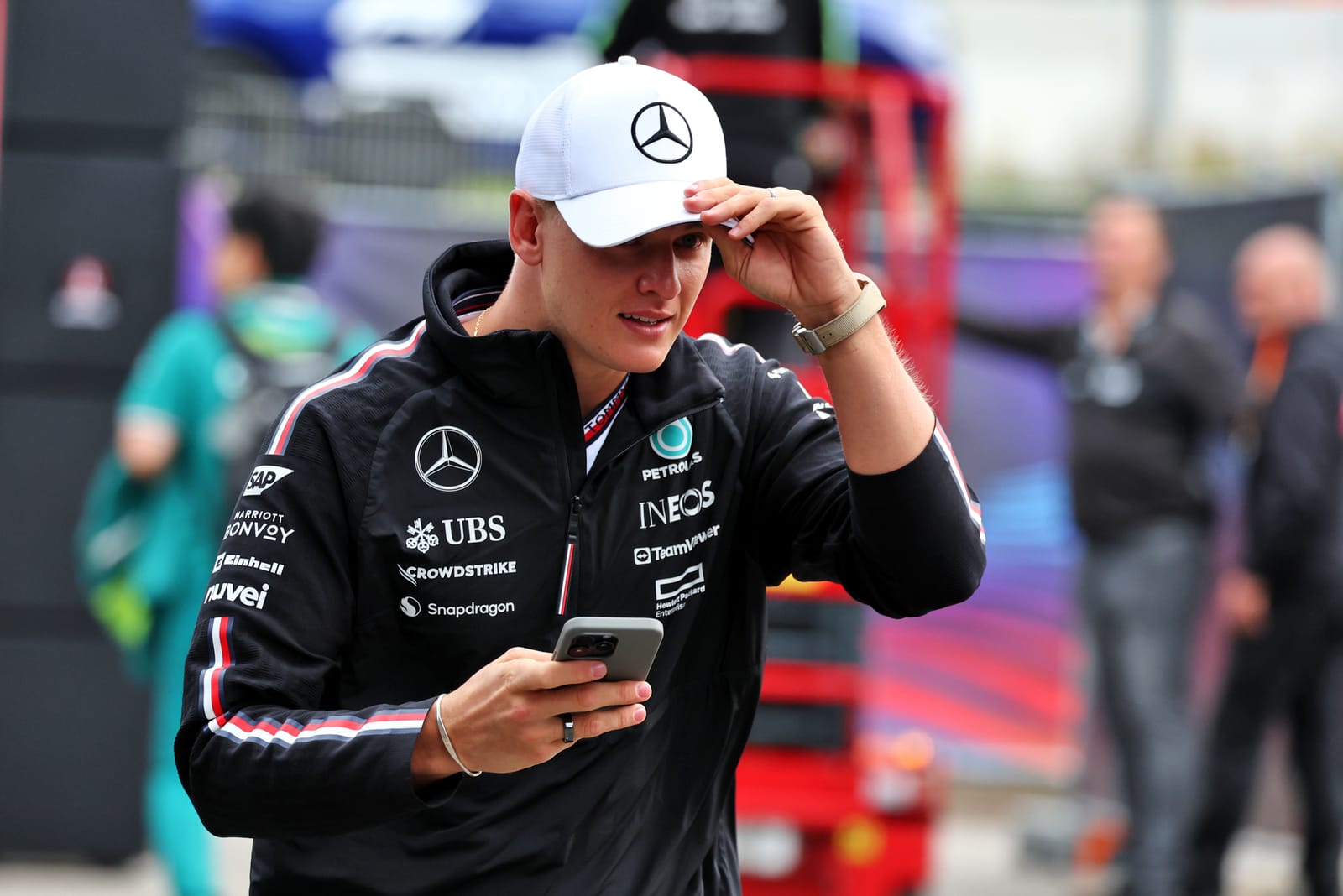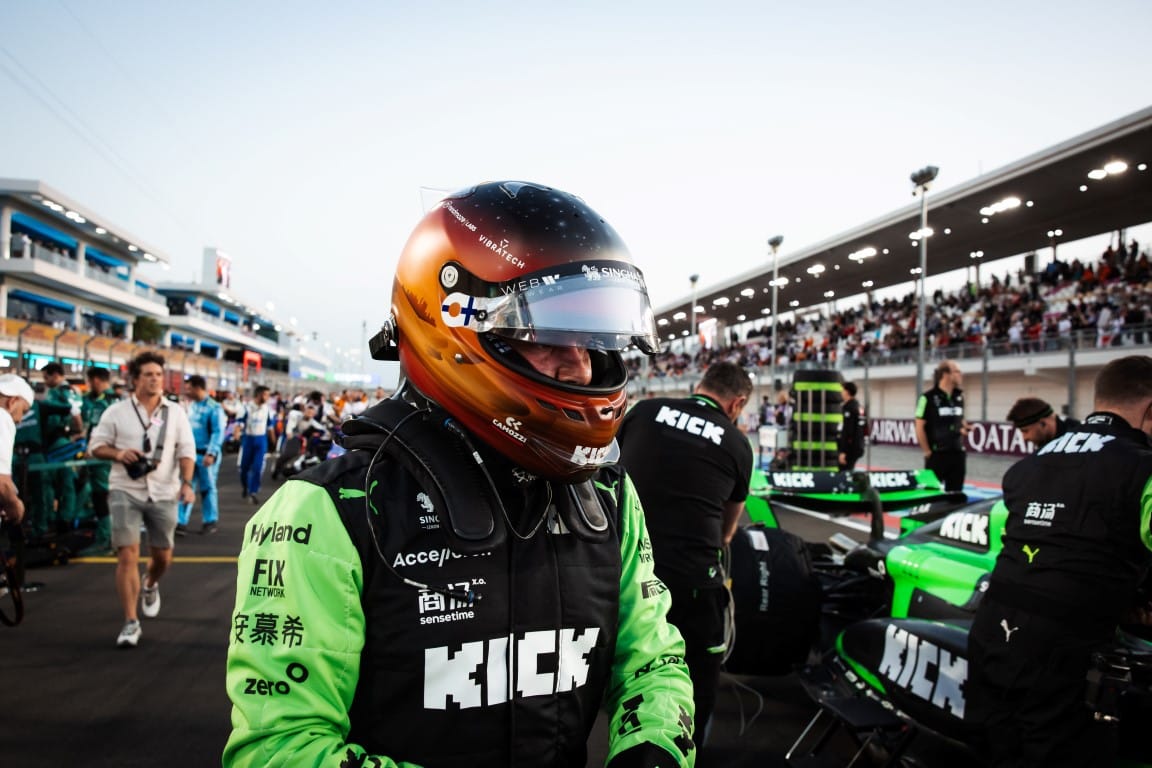Up Next

The process of settling the 2025 grid began when the most ridiculous and early-starting driver market that many in Formula 1 could remember was kicked off almost 12 months ago.
An absurdly long-running saga began in late January last year when Lewis Hamilton shocked the F1 world with news of his switch to Ferrari.
It finally came to an ‘end’ in December, when Red Bull confirmed Sergio Perez would be replaced by Liam Lawson and Isack Hadjar got promoted to a Racing Bulls seat, although there is still an unofficial asterisk against the grid thanks to Alpine’s signing of Franco Colapinto and the widely held belief that incumbent driver Jack Doohan is under pressure to keep his seat beyond just a few races.
Even without that, half the grid has changed from the start of 2024 to now.
There’s a certain irony in the fact that the first driver moves last year threatened a boring ‘more of the same’ narrative, with Charles Leclerc and Lando Norris tying themselves to Ferrari and McLaren for the long-term respectively.
Then Hamilton set off a cascade of events in the most dizzying driver market there's ever been, as drivers, their managers, and team bosses were all put on red alert for what the knock-on effects would be – sparking many links you might well have forgotten.
TOP TEAM UNCERTAINTY
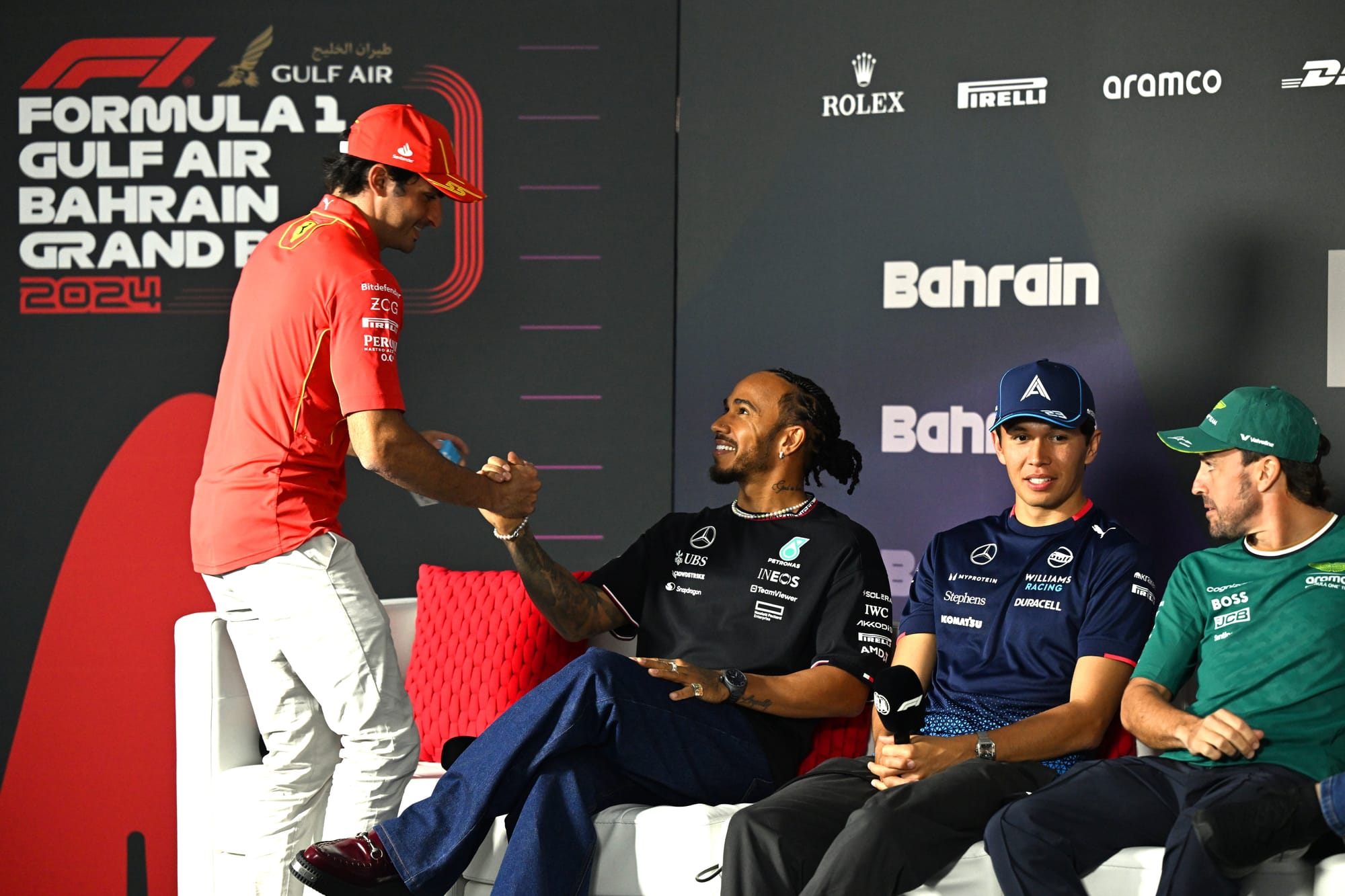
When the Hamilton vacancy emerged, Mercedes’ hotshot Kimi Antonelli, yet to even start his rookie Formula 2 season at 17 years old, immediately entered the frame. But he was not the only one. Carlos Sainz and Fernando Alonso were also in the initial picture, and Toto Wolff also paid polite lip service to the recently retired Sebastian Vettel too.
Mercedes’ options: Verstappen, Antonelli, Alonso, Sainz, Vettel(?)
Sainz’s candidacy seemed most obvious, as no other remotely frontrunning team seemed interested in him, even after he returned from an appendectomy that caused him to miss the second race of the year in Saudi Arabia to win the Australian Grand Prix a couple of weeks later.
Red Bull’s own dramas had kicked off by this point too. It had to weigh up its options for its second car as while Sergio Perez had started strong, he was out of contract so his seat was up for grabs for 2025. But it had other problems, starting with the Christian Horner controversy and a huge political war within Red Bull that seemed it might even drive Max Verstappen out of the door.
Mercedes was keen to take advantage by openly flirting with the Verstappens to offer him a way out, while Red Bull held preliminary conversations with Fernando Alonso as a potential Verstappen Plan B. Sainz was on the radar but always a long shot as Red Bull was not keen on pairing him and Verstappen again – and he never seemed to be considered a potential replacement should Verstappen himself leave.
Meanwhile, Daniel Ricciardo’s early season struggles at the second Red Bull team dampened the prospect of him being put alongside Verstappen again and sparked very early speculation he could dropped in-season for Liam Lawson.
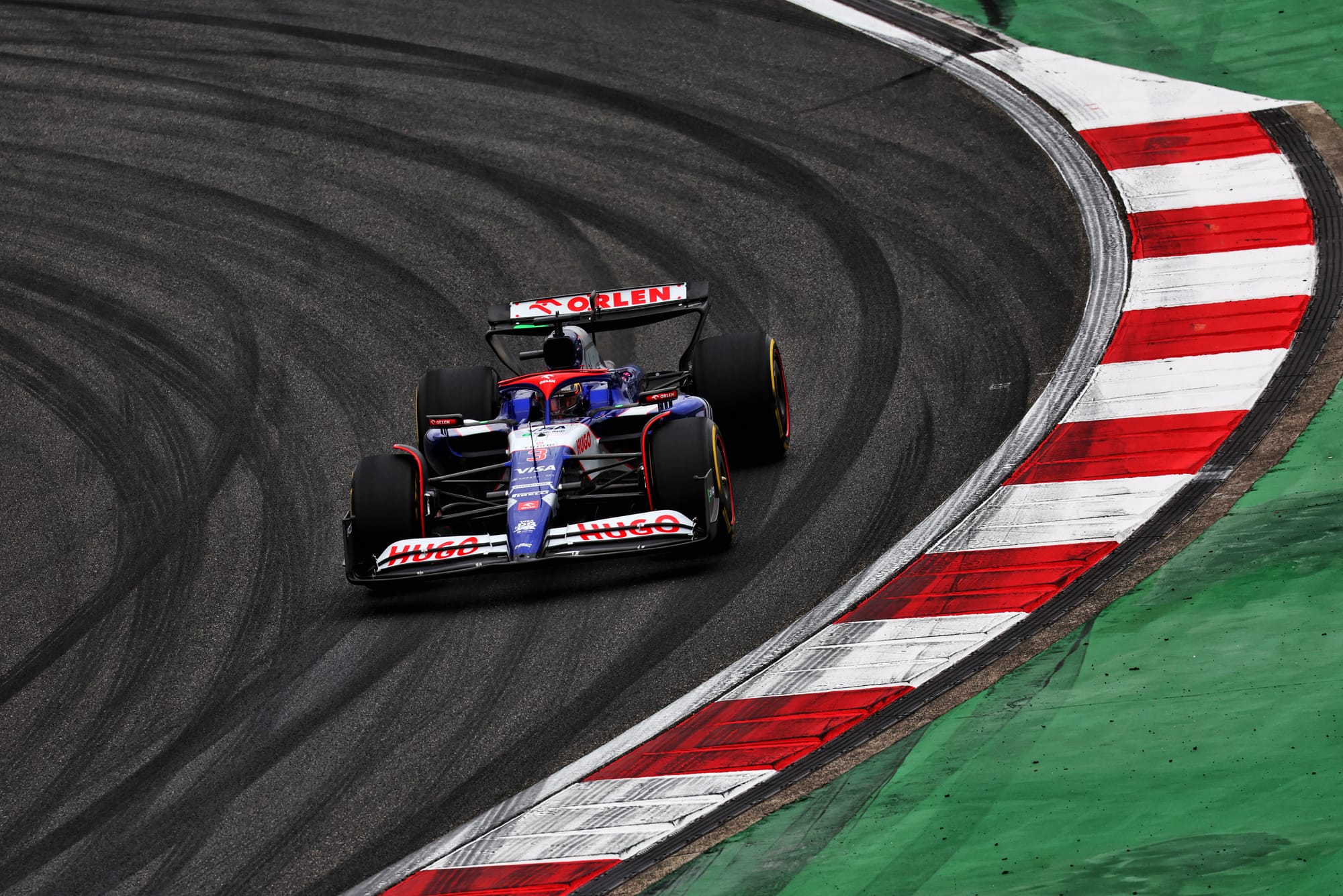
So uncertain was Red Bull’s path that it started to show some serious interest in another of its former drivers: Alex Albon. There was even talk in February of a pre-contract being offered, giving Red Bull the first option on him from 2026.
Red Bull’s options: Perez, Ricciardo, Lawson, Tsunoda, Alonso, Sainz, Albon
When Alonso re-signed with Aston Martin in April, that took him definitively off the board for Red Bull, and also Mercedes – where the priority order was signing Verstappen if he was available, or promoting Antonelli if everything went well with his development. Sainz seemed like a luxury fallback.
AUDI'S FIRST IMPACT
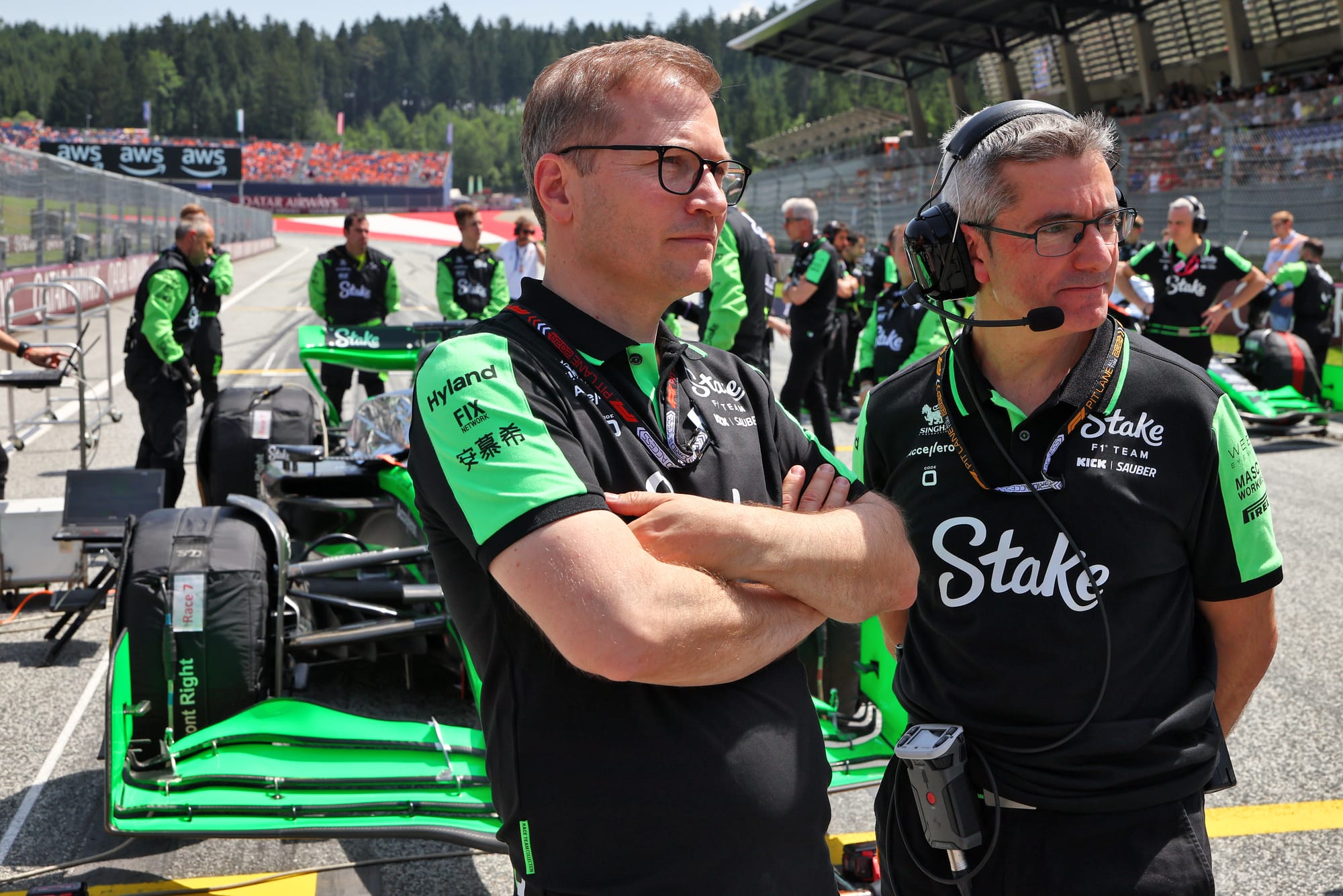
Audi was initially very proactive in the driver market as it looked to secure drivers to lead Sauber’s transition into becoming the Audi works team.
So wide-ranging was its scouting that Red Bull juniors Yuki Tsunoda and Lawson were strongly considered by then-Audi F1 CEO Andreas Seidl. But of course, Sainz was the number one target. And this put Audi briefly head-to-head with Red Bull around springtime.
Audi/Sauber’s options: Sainz, Hulkenberg, Tsunoda, Lawson, Bottas, Zhou
Red Bull senior advisor Helmut Marko started talking about Audi making a massive offer for Sainz that Red Bull couldn’t match. This was partly true, but Sainz was basically in talks with everyone: Red Bull, Mercedes, Audi, Williams, Alpine and even Haas.
There was inevitably smoke and mirrors here. Red Bull was trying to distance itself from Sainz because the real reason it had for not wanting him – that it’d be too awkward with Verstappen – wasn’t publicly a good look. Claiming it would be priced out was a convenient excuse.
While Audi’s bid might have been overplayed, its interest was serious. Sainz was its top target and it seemed really simple that he was either going to hang on for Red Bull or Mercedes, or just settle for the Audi project.
But Sainz wasn’t the first signature Audi landed. Instead, it locked down Nico Hulkenberg very early, in April.
This had three consequences: it boiled the fight to drive for Audi down to a single seat, it made it clear that incumbent drivers Valtteri Bottas and Zhou Guanyu were low priority options and likely to be replaced, and it made a seat available at Haas, which was already weighing up replacing its other driver Kevin Magnussen.
THE CORK IN THE BOTTLE
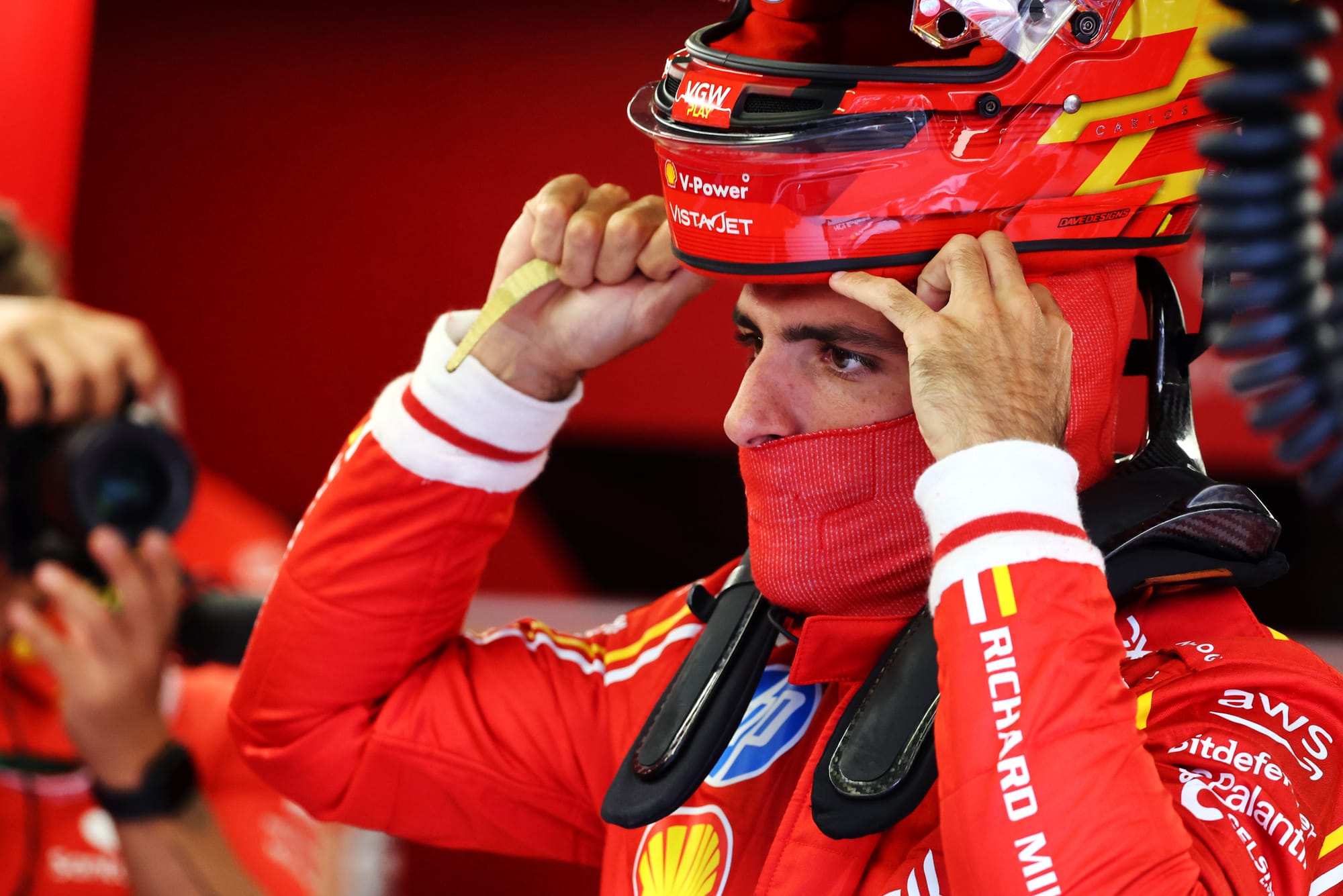
Sainz quickly became the cork in the driver market bottle. Even some moves that were separate from it were tangentially related.
In May, Albon removed himself from any shred of contention for a Red Bull return, or potentially becoming an unexpected option for Mercedes further down the line, by committing himself to the Williams project on a new, longer-term and financially rewarding multi-year deal.
Williams was convinced that Albon was a great option for its ambitious project, especially as it had eyes on Sainz but knew it was an outsider in that fight.
And while Albon was playing it safe by sticking to what he knew rather than rolling the dice on getting a bigger seat somewhere else, he also cashed in on his value being at an all-time high.
Williams’s options: Sainz, Bottas, Ocon, Antonelli, Sargeant
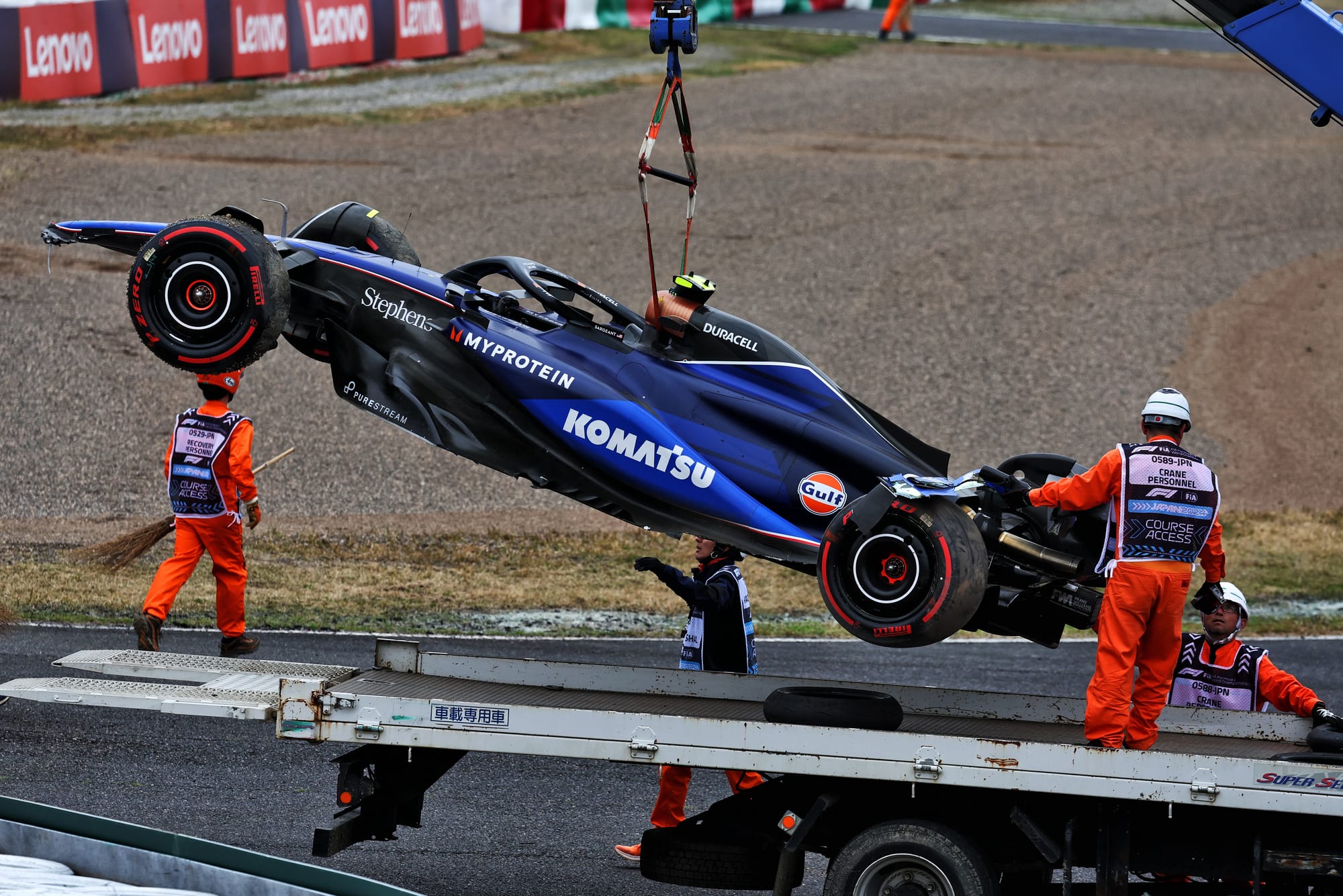
Williams had a horrible start to 2024 but it was also becoming a more highly coveted midfield team. Logan Sargeant was struggling to see out the season let alone keep his drive for 2025, and lots of drivers were in the mix: Bottas was an option and engaged in a lot of talks, like Sainz, Mercedes youngster Antonelli kept being linked as a short-term loan option, while another contender was Esteban Ocon.
It was an open secret that Ocon was likely to leave Alpine for 2025, and when he collided with team-mate Pierre Gasly in Monaco at the end of May, then-team boss Bruno Famin threatened to bench Ocon for the next race in Canada.
While that didn’t come to pass, it was announced before that grand prix that Ocon would leave the team at the end of the season.
Alpine’s options: Sainz, Bottas, Doohan, Tsunoda
Tsunoda was theoretically in play at Audi, Haas and Alpine, all of which had conversations to different degrees, with Haas particularly keen. But Haas also looked like a good destination for Ocon, who was never in the frame to take Hamilton’s seat even though he is managed by Mercedes, and even for Bottas.
Haas’s options: Ocon, Bearman, Tsunoda, Magnussen, Bottas
At Alpine, reserve Jack Doohan was quickly identified as a strong candidate to replace Ocon, while Bottas had some preliminary conversations with the Renault works team as well.
As a quick interlude of some semi-detached Red Bull nonsense, early June was the same time that a new Perez deal was confirmed - to the end of 2026 despite just having an absolute shocker in Monaco.
It was also announced a few days later that Tsunoda would be parked at the second Red Bull team for another season, removing him as a wildcard in the midfield fight.
CURVEBALL(S) WITH SAINZ
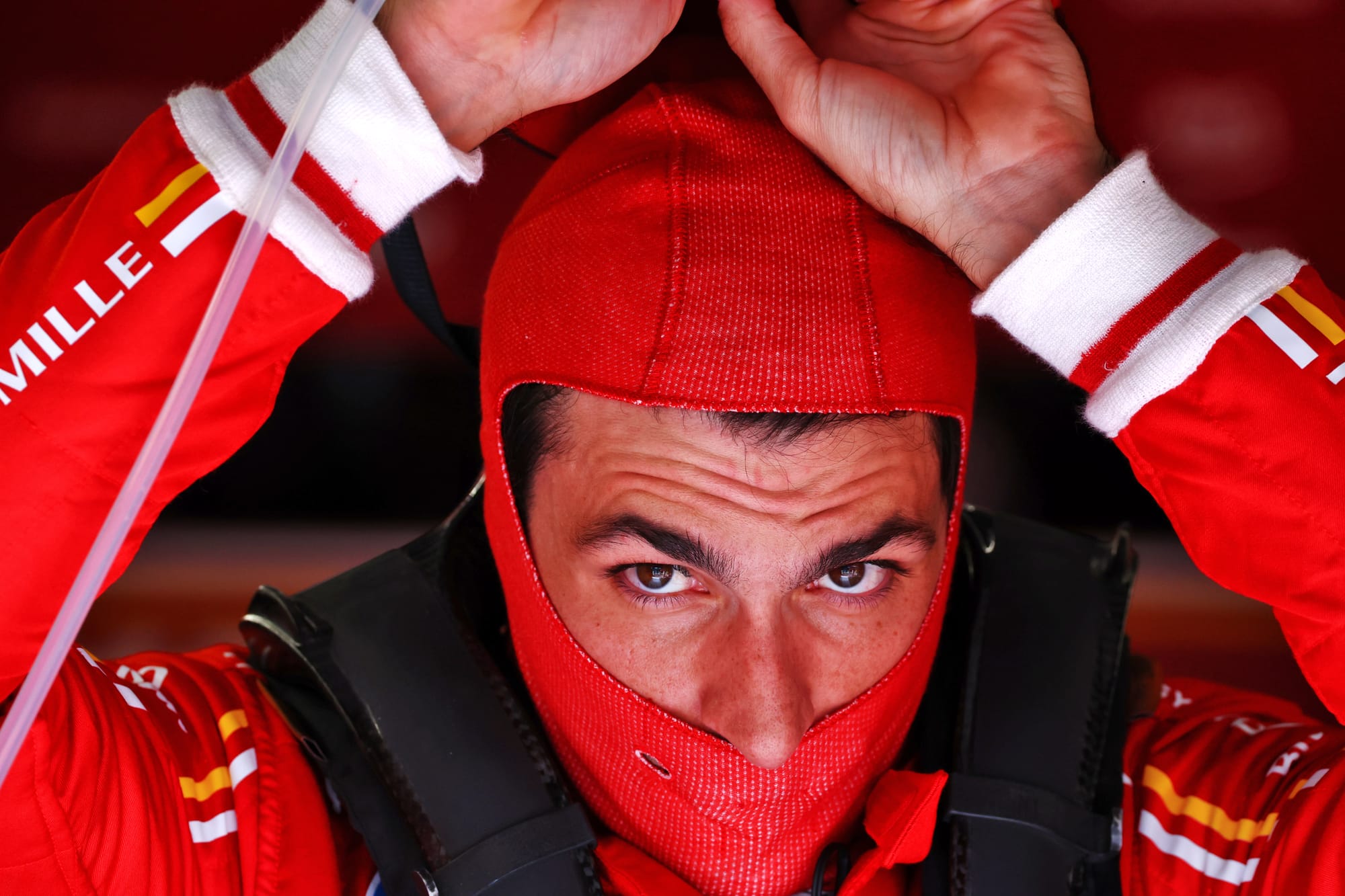
The longer Sainz held out, forlornly, in the hope a top seat would become available, the more his situation changed.
Audi was no longer the obvious Plan B. Partly because Sauber’s on-track form was so bad, partly because Audi-level political fighting seemed to be proving disruptive, and it just became a less appealing option despite the obvious potential.
But it was also partly because two curveballs emerged. First, Williams became a serious rival for Audi in the Sainz chase. Talks had been happening for months but around May and June is when it first looked like a legitimate destination.
There was even an expectation within Williams that Sainz would commit by the Spanish Grand Prix in late June. But that turned out to be one of several unofficial ‘deadlines’ that would pass as Sainz continued to dither.
This led to the second curveball: Alpine. But not as the works team as everyone knew it. Flavio Briatore’s arrival ‘coincided’ with a proposal for Renault to drop its own engine programme and become a Mercedes customer.
It combined with some bold promises about what that would mean for Alpine competitively, and covered off the ‘well if you want a Mercedes engine, don’t pick Williams, pick us!’ argument too.
Sainz’s options: Alpine, Williams, Audi/Sauber
There was enough there for Sainz to take it seriously, and for Williams to be seriously worried it would lose out.
Talks with Bottas even progressed to the point it seemed if Williams was willing to confirm a deal, Bottas was ready to sign. But most people were still stuck waiting come July.
Audi, though, seemed to take its foot off the gas. Seidl was not in a rush to chase a back-up, content to just see who remained available if Sainz did indeed go elsewhere.
ALL CHANGE AT THE SURPRISE PACKAGE
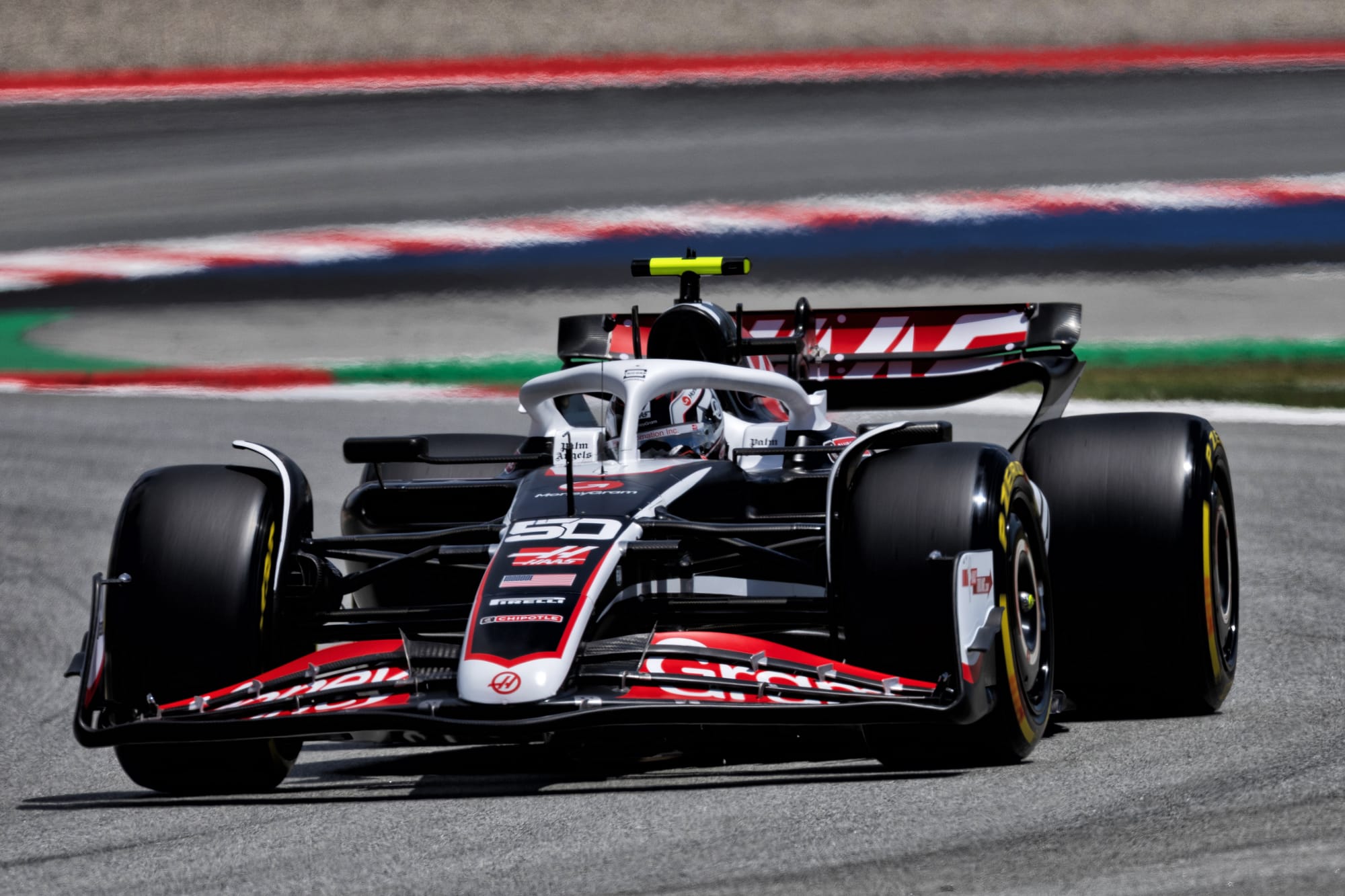
Some weren’t interested in hanging around for that resolution. An unexpectedly competitive year for Haas had made F1’s worst team from 2023 a surprisingly appealing prospect again – and team boss Ayao Komatsu was keen to take advantage.
Komatsu had missed out on trying to retain Hulkenberg because team owner Gene Haas didn’t want to engage in driver negotiations so early in the year. But Komatsu at least made sure this didn’t linger until after the summer break.
Ocon had a seat fit at Williams but he wasn’t plan A or plan B there, so cracked on with finalising a Haas move. But not before the long-anticipated confirmation in early July that Ferrari protege Ollie Bearman would get a full-time drive with Haas.
The Bearman deal had basically been on the table going into the season, which meant there was only really one Haas seat on the table once Hulkenberg’s exit was known.
That gave Magnussen a shot at sticking around but he would have had a better chance had he performed in the first half of the year the way he would in the final few races.
Once Ocon was in the frame, Magnussen’s chances looked bleak. He was kicked towards the F1 exit door yet again when Haas announced in mid-July he’d leave the team at the end of the year. And Ocon’s eventual confirmation followed a week later.
RED BULL CHAOS INTERJECTION
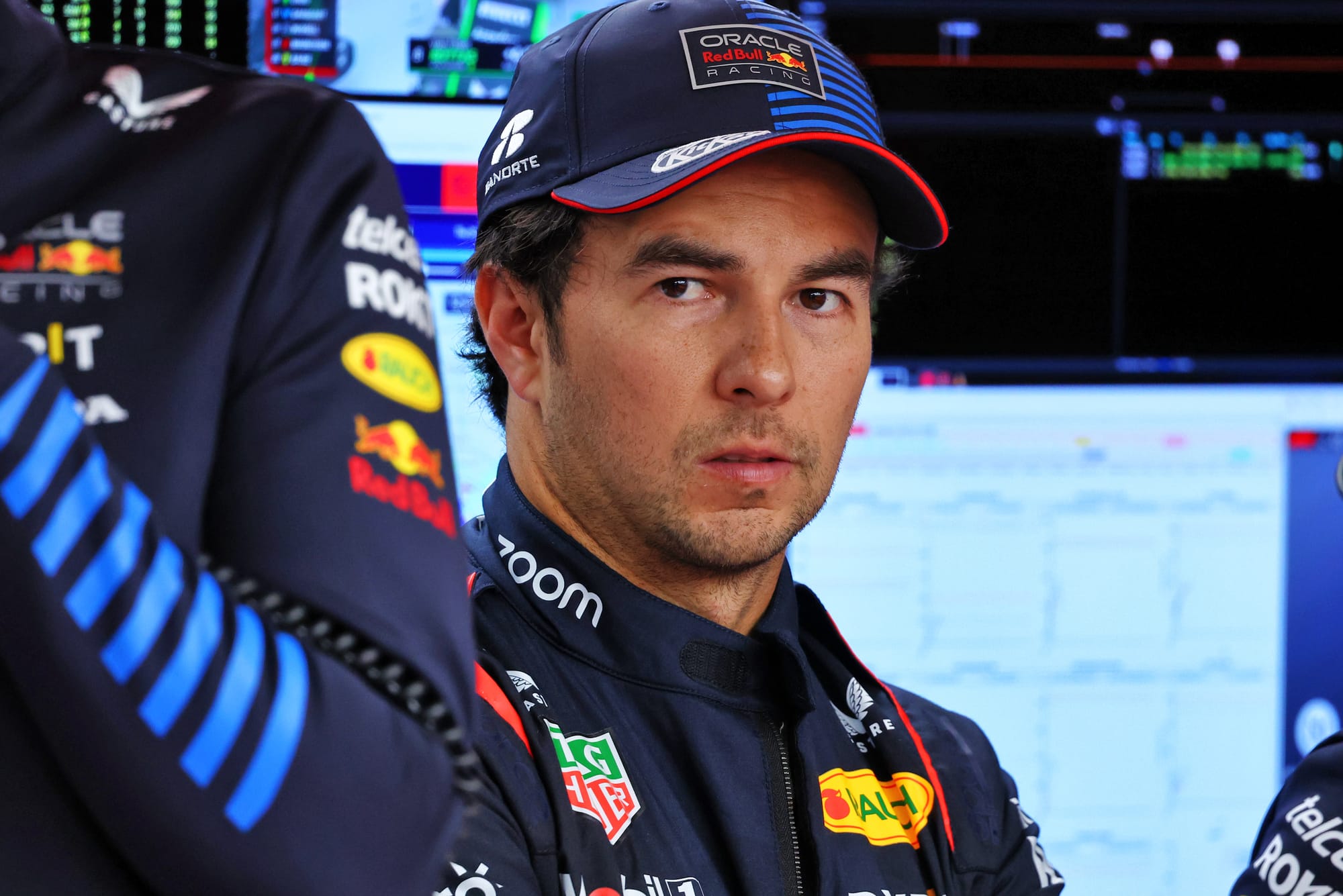
Perez’s form nosedived as the season progressed, which led to the start of an extensive wave of Red Bull uncertainty.
Just a couple of months after giving Perez his new deal, Red Bull considered dropping him as the August break approached. At the same time Ricciardo was told he could be axed entirely, or if his turnaround in form in the second quarter of the season continued, he could potentially replace Perez at Red Bull Racing.
Tsunoda remained in limbo as different factions disagreed over his top team candidacy, while Lawson was waiting in the wings. Lawson had a contractual deadline to have an F1 move of some kind guaranteed by September.
The whole thing reached an initial crisis point when it became known there would be a meeting between key Red Bull stakeholders at the start of August that would include a discussion over whether to drop Perez or not.
He survived, just. There were commercial implications to dropping him and the likelihood of an extremely expensive payoff, all the while none of the alternatives were really making a stunning case they’d do any better – with Sainz having been properly ruled out internally.
Red Bull’s options: Perez, Ricciardo, Lawson, Tsunoda
The upshot was having finally rid itself of Mercedes’ constant fishing for Verstappen, who ended whatever talks he was having with Mercedes boss Toto Wolff over the summer break, Red Bull looked more confused than ever about what to do with its second seat.
Mercedes’ options: Antonelli, Sainz
Whereas Mercedes’ choice was becoming increasingly clear.
SAINZ FINALLY DECIDES!
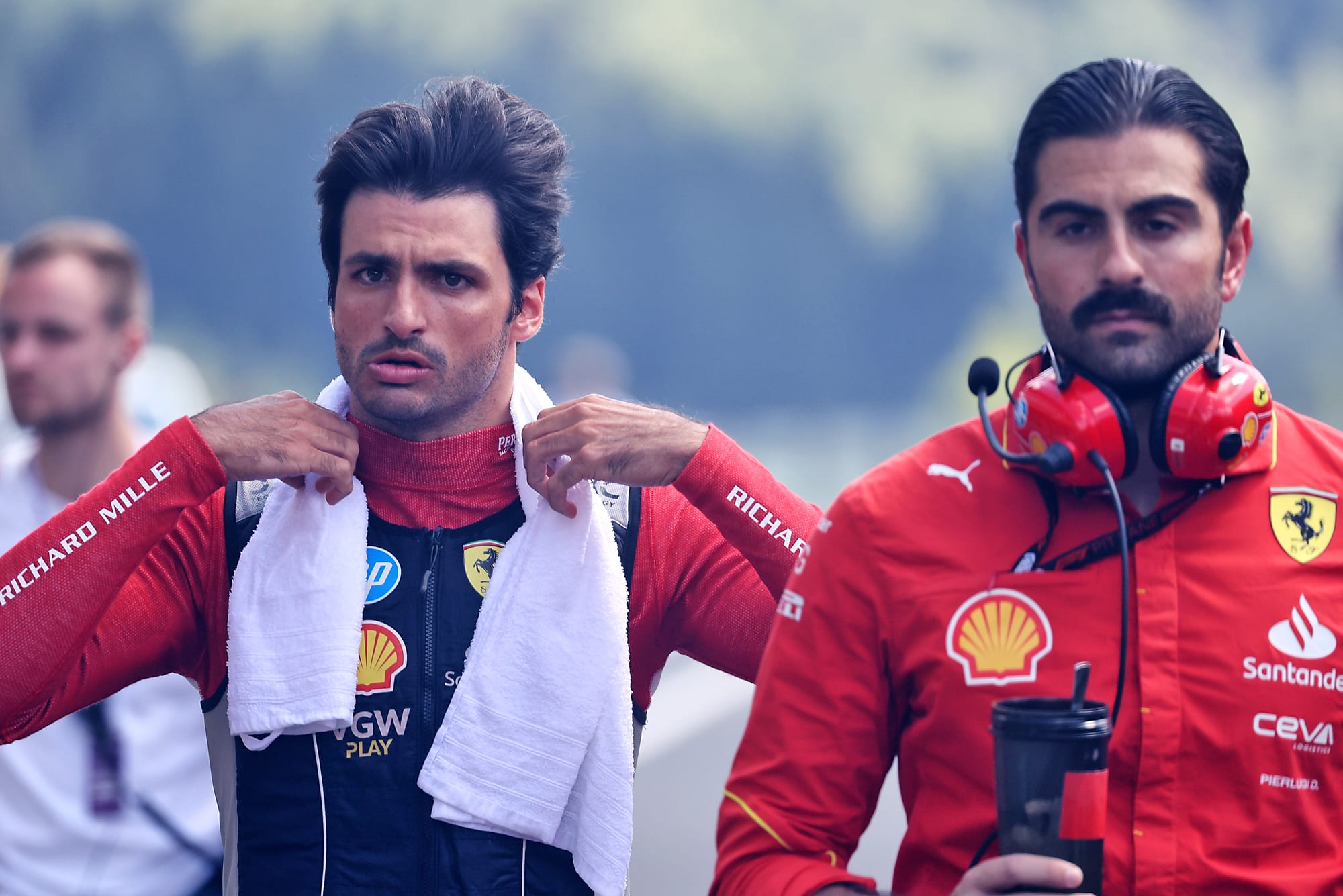
While Red Bull was all at sea, the perfect driver to fix their problems finally decided his future.
Sainz picking Williams, which was announced the day after the Belgian Grand Prix at the very start of the summer break, brought that saga to a conclusion that had lurched from ‘unlikely’ to ‘favourite destination’ to ‘unlikely again’ and then back to being ‘the least worst option’.
That freed Alpine up to promote Doohan, who had seen off leftfield threat Mick Schumacher in an effective ‘shootout’ test, and was confirmed on the other side of the summer break.
Audi changing its top management in late July didn’t help even though it was Mattia Binotto who took charge in place of Seidl and Audi’s representative Oliver Hoffmann: Binotto being the person who had brought Sainz to Ferrari in the first place.
That all happened too late to make a difference to Sainz’s choice. And there was also the growing realisation as 2024 progressed that Mercedes wasn’t as interested in Sainz as he and his family thought he deserved.
Mercedes was set on Antonelli and the Sainz camp knew it: that’s why Sainz actually made his decision a few weeks before the Mercedes seat was taken off the market.
August confirmations: Sainz (Williams), Doohan (Alpine), Antonelli (Mercedes)
Antonelli wasn’t announced until the end of August, at his home race in Italy – the day after he drove in free practice for the first time and crashed on his second flying lap.
That made for an amusing, awkward sub-plot to the timing of Mercedes’ long-planned announcement, but Mercedes had long been convinced that Antonelli’s prodigious ability made him worth the risk. Toto Wolff even claimed he wanted to promote Antonelli as soon as Hamilton told him he was leaving.
Audi/Sauber options: Bottas, Zhou, Bortoleto
The Williams/Alpine seats getting filled meant Bottas was now in a ‘Sauber or nothing’ situation.
Bottas had been determined to leave Sauber before the management change. That seemed to offer him an olive branch and initial conversations seemed to be encouraging – but Binotto also immediately hinted that he could opt for a younger driver to partner the already signed Hulkenberg instead.
THE IMPACT OF MID-SEASON CHANGES
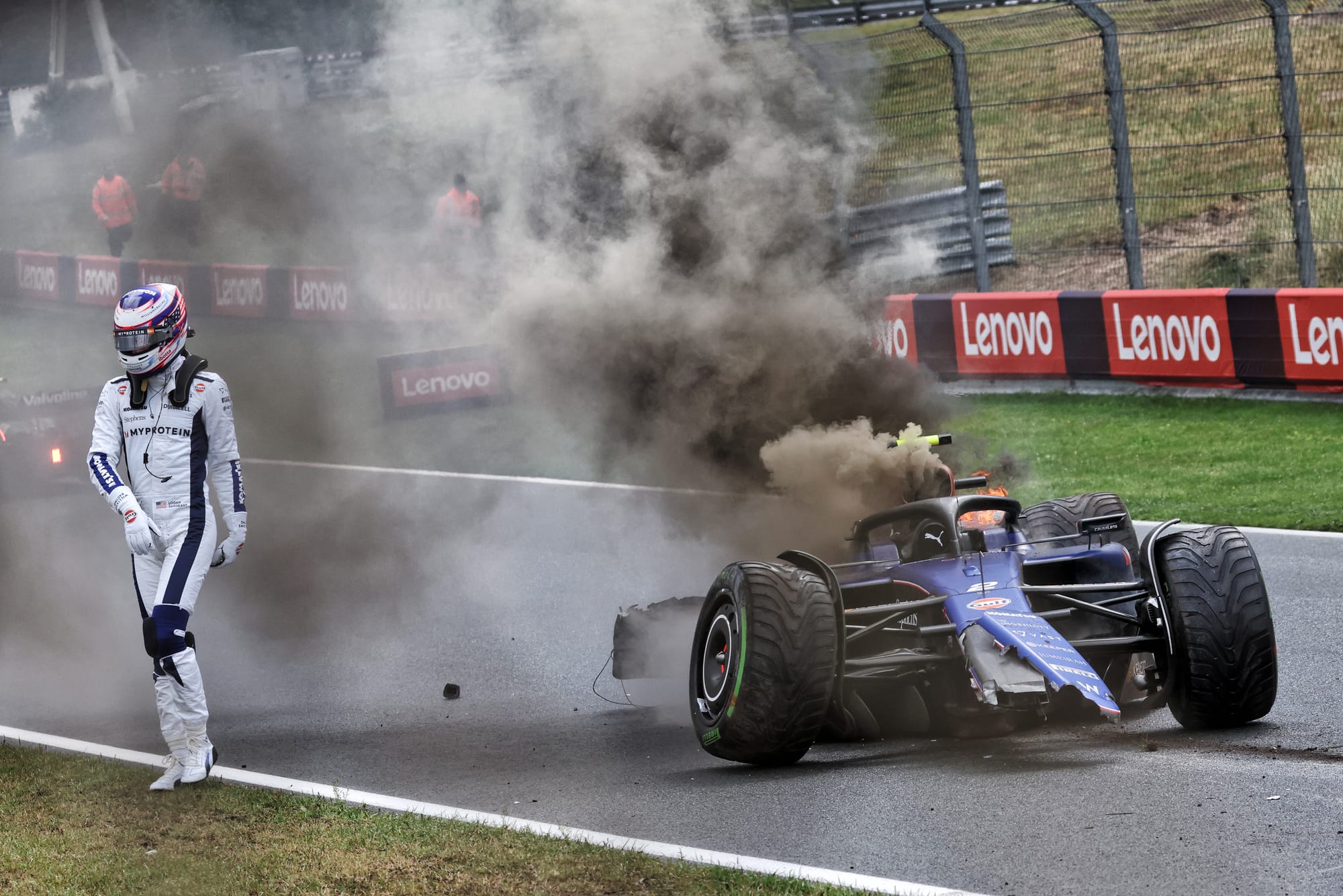
Two curveballs were thrown into the driver market by mid-season driver changes at two teams.
First, Sargeant’s Williams exit, just one race after the summer break and between the Zandvoort/Monza double-header.
It seemed irrelevant given Sainz had been announced for 2025, but it introduced a completely unexpected factor into the driver market: Sargeant’s replacement, Franco Colapinto.
Colapinto got the Williams seat over Schumacher, who was snubbed by a second team in a matter of weeks, with Vowles so bluntly dismissing Mick as not a special talent he needed to apologise to him!
The best-case scenario for Colapinto was he forced his way into the equation elsewhere. And, against all the odds for a driver so inexperienced, that’s exactly what he did to start with.
After a solid Monza debut, Colapinto scored points on his second start in Azerbaijan, put in a head-turning drive in Singapore, and rose from the back of the grid into the top 10 in the US - a weekend where he looked more comfortable than Albon throughout.
By October Colapinto was on a few teams’ radars, most notably Red Bull’s, which was open to him as an option to partner Verstappen, not just slot into the second team.
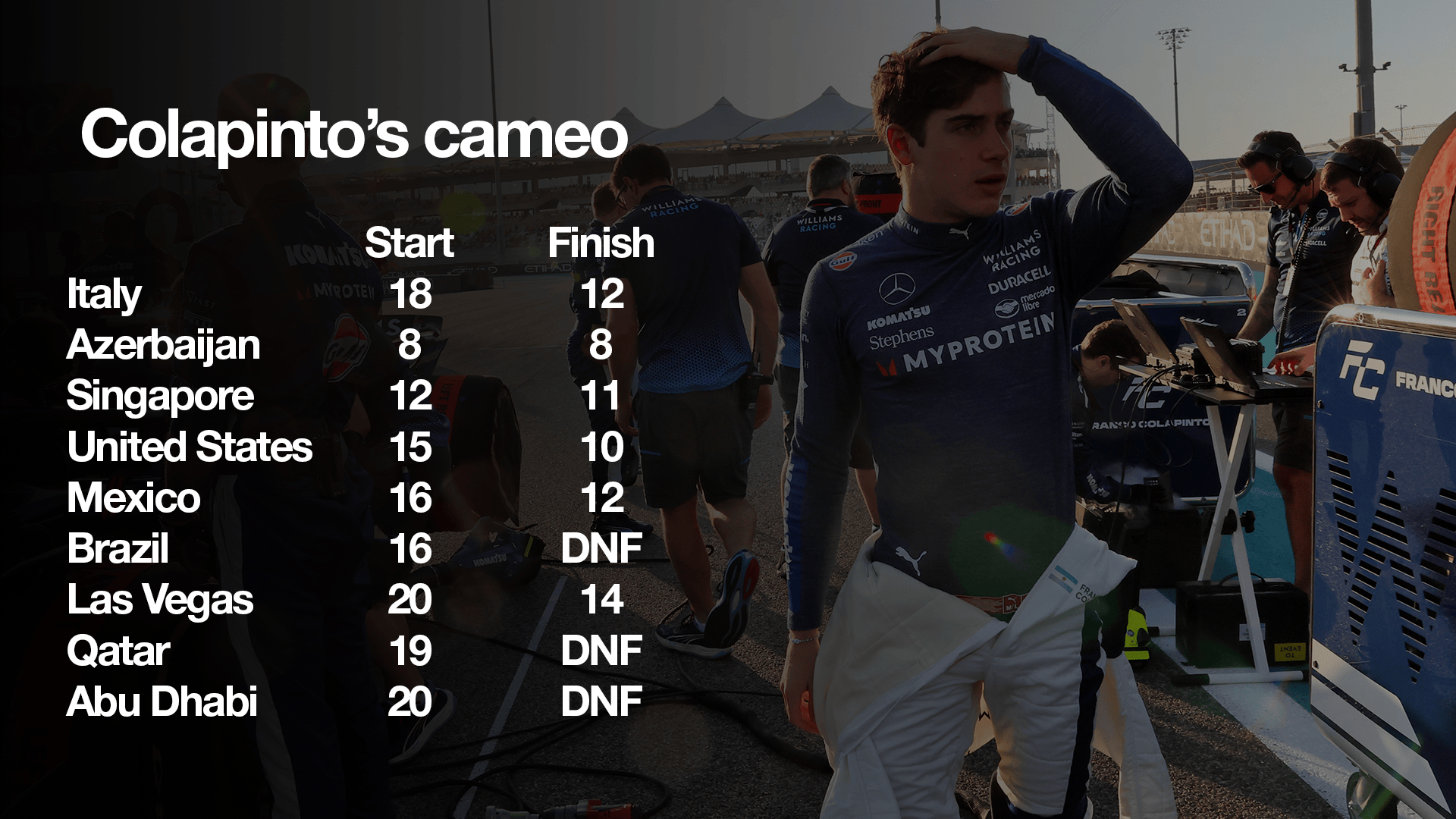
But Red Bull’s own nonsense had escalated again, because it had made a driver change of its own.
Ricciardo was sacked in September, lasting four races after the summer break, with Lawson given another cameo alongside Tsunoda that was essentially an audition to be Perez’s replacement for 2025.
Red Bull’s options: Perez, Lawson, Tsunoda, Colapinto
AUDI RESOLUTION
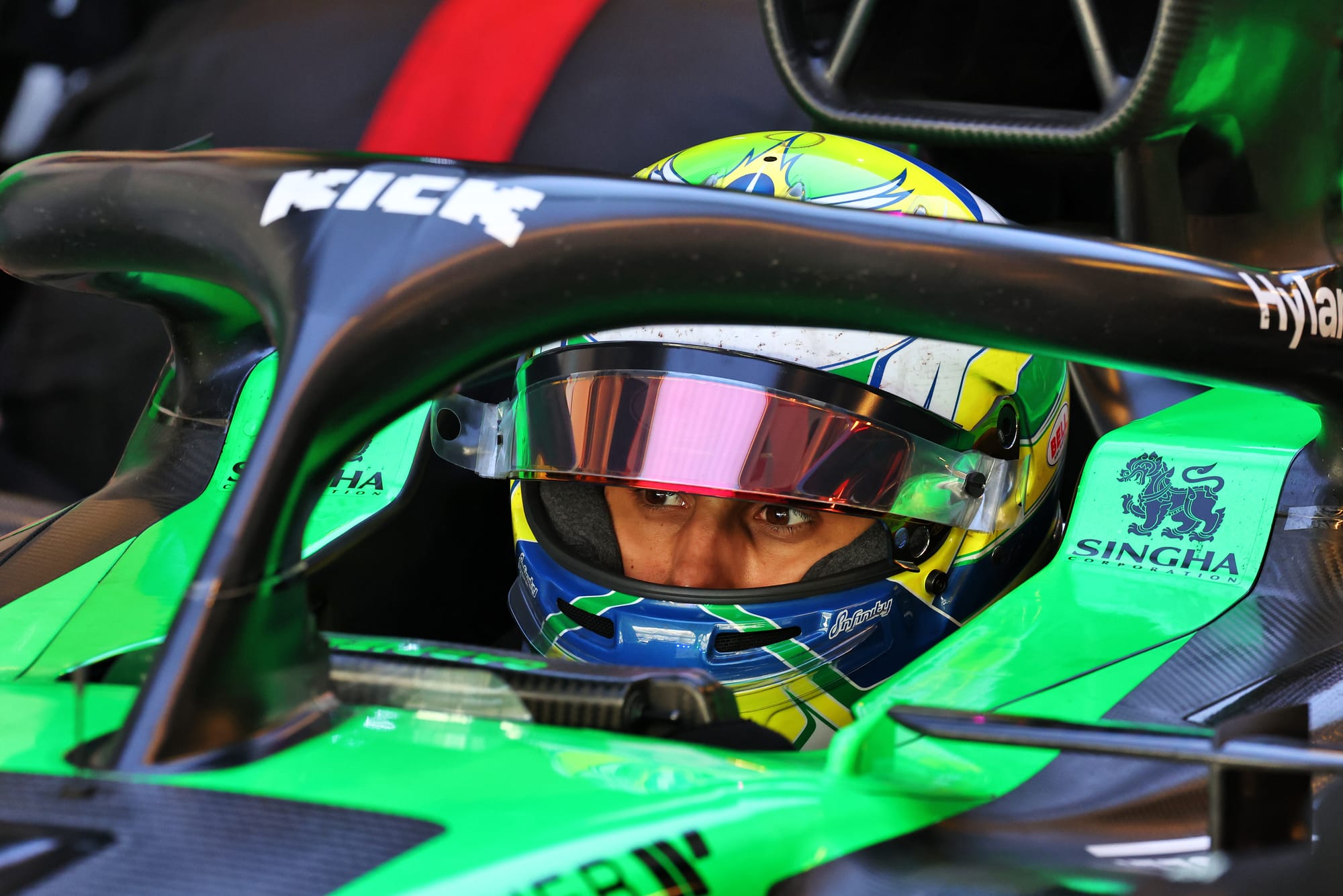
Colapinto and Lawson were also indirectly bad news for the likes of Bottas. They cemented a view that the next generation of drivers deserved a chance, and were ready for F1, which Audi seemed to get particularly excited by: even though these two drivers weren’t Audi’s main target. Another youngster was.
Bottas was initially very confident that the changes at Sauber and Audi were good for him and that he was more likely to be on the grid in 2025 than not. But his confidence was misplaced.
Whether he and his representative were misled by Binotto, or the picture simply changed due to the uncertainty that defined this driver market, only a few people could say with certainty.
Bottas had a contract agreed and had even signed it himself. He thought a deal could be done in September: by November he was still waiting.
Audi became convinced it needed to pair Hulkenberg with a young driver, rather than have two drivers in their late 30s. But it wasn’t interested in Sauber’s own F2 champion Theo Pourchaire: so it chased McLaren junior Gabriel Bortoleto.
The Formula 2 rookie, managed by Fernando Alonso’s stable, was piecing together an extremely impressive championship challenge.
A relatively swift period of negotiation with McLaren, which rated Bortoleto quite highly but knew it had no medium-term vacancy for him, was concluded by early November.
That confirmed both Bottas and Zhou Guanyu would be on the sidelines in 2025, with Bottas getting a return to Mercedes as reserve driver as his consolation prize.
RED BULL NONSENSE: THE FINAL CHAPTER
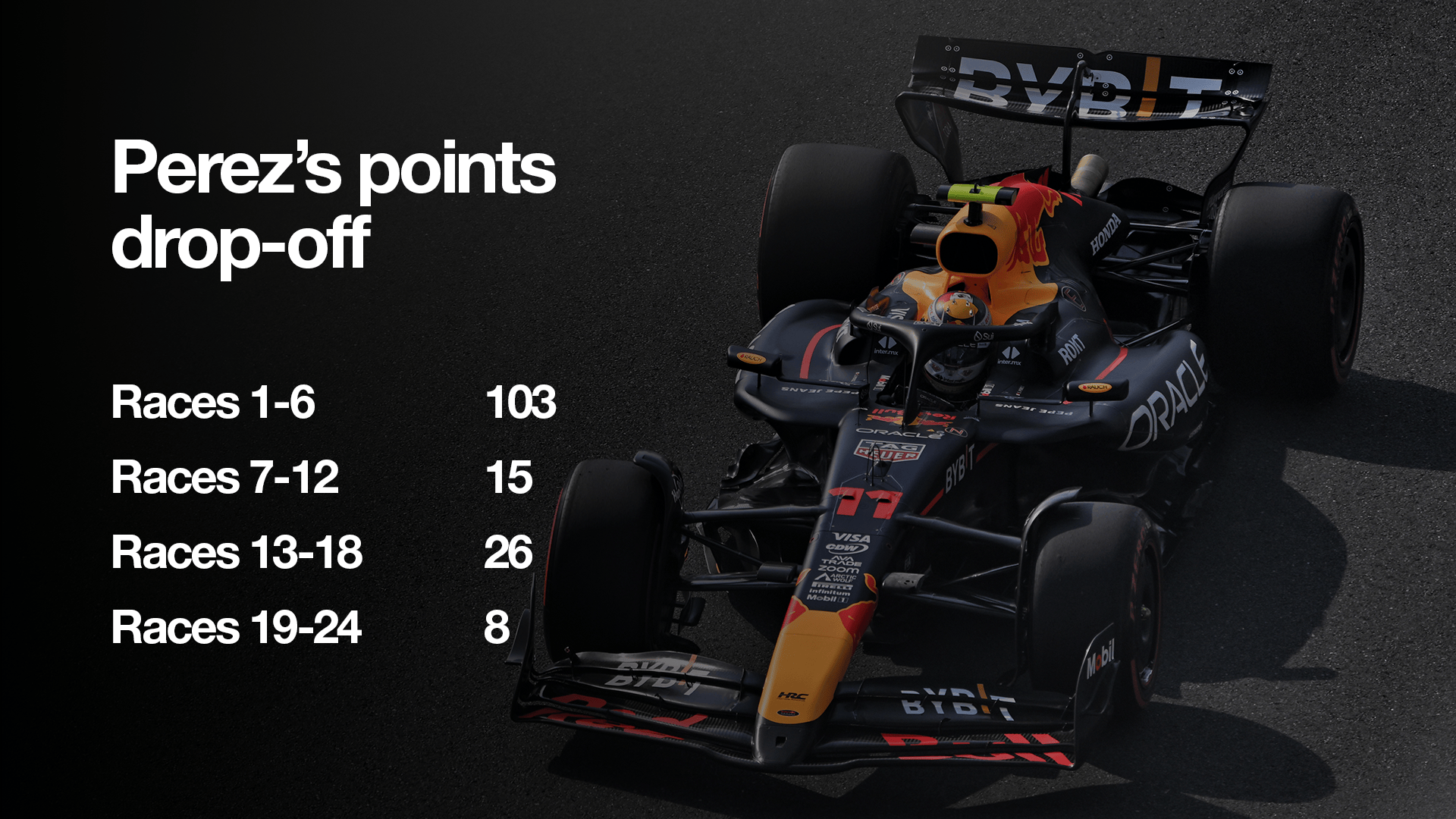
As Perez’s terminal decline continued over the final races, the drivers vying to replace him took turns to impress. Nobody really stood out.
Colapinto’s viability faded almost as rapidly as it first emerged with a series of crashes in Brazil and Las Vegas in November, and Albon ultimately getting back on top of him. That bumped Colapinto out of Red Bull contention entirely and meant interest also cooled at Alpine, which was surprisingly open to making room for him by easing Doohan out early.
For Red Bull’s own drivers, Lawson made a solid case but failed to outqualify Tsunoda for a grand prix. Meanwhile Tsunoda just couldn’t do anything to undo the reputation he seems to have been permanently branded with at Red Bull, as a driver who lacks emotional control and consistency.
By early December it was known that Red Bull wanted to replace Perez and was leaning towards Lawson, but wasn’t 100% set and didn’t know exactly how the Perez departure would work – as Perez was constantly deriding the speculation as fiction and insisting he had a contract.
Red Bull’s options: Lawson, Tsunoda
After his lap one retirement in the Abu Dhabi season finale though, Perez’s tune finally changed and he admitted there would be discussions to resolve his situation. These December negotiations included Red Bull making it clear to Perez that if he didn’t agree to move aside his contract would be honoured in 2025 by making him a glorified reserve driver.
Eventually, Perez ceded and by late December a mutual agreement was struck. Perez got compensation, Red Bull was free to replace him: and picked Lawson over Tsunoda.
That also opened up a spot at the second team to promote F2 runner-up Isack Hadjar, the latest Red Bull junior to enter the maelstrom fresh from losing his championship fight against Bortoleto.
By December 20, 2024, the full 2025 grid was finally set: a whopping 323 days after it had been thrown into chaos by Lewis Hamilton and Ferrari.
A final twist
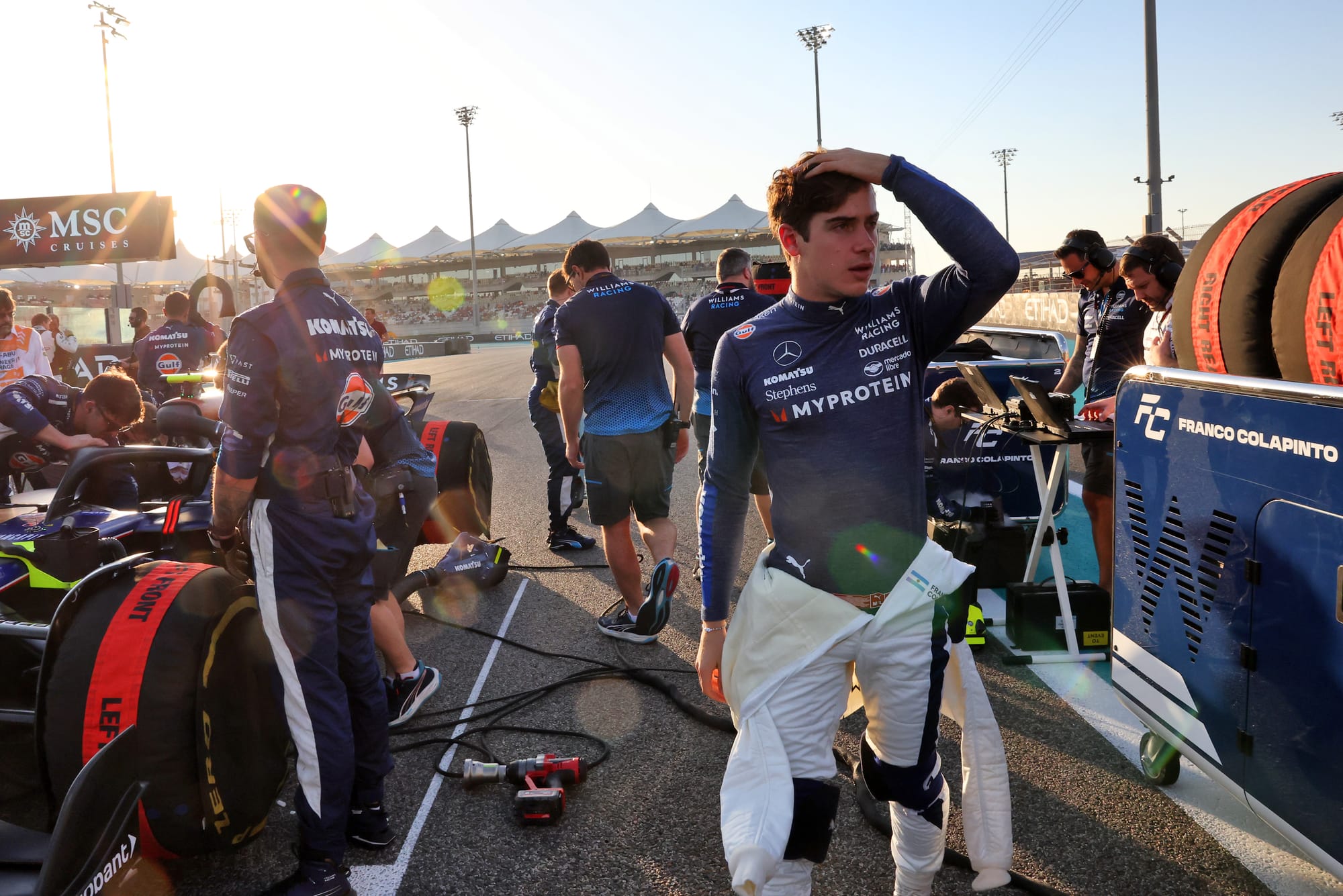
There’s a catch, though. In early January 2025, Colapinto was announced as an Alpine test and reserve driver, as the team decisively acted on its interest and struck a deal with Williams to sign Colapinto on a “multi-year deal”.
Alpine’s options: Doohan, Colapinto
That’s been widely interpreted as Alpine making sure it can easily replace Doohan with Colapinto if it wants to, or whenever it’s able to.
This driver market may yet have a post-script several races into the 2025 season.
